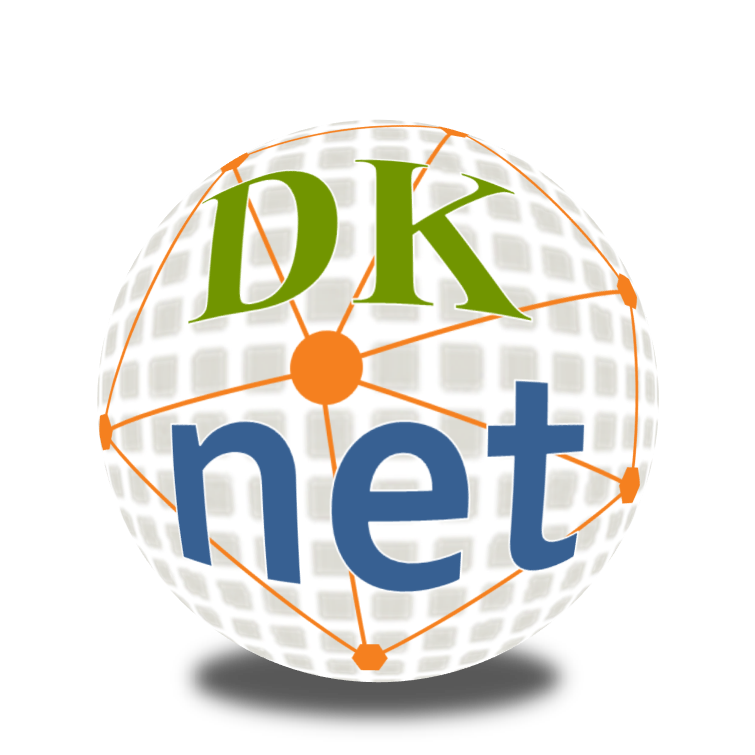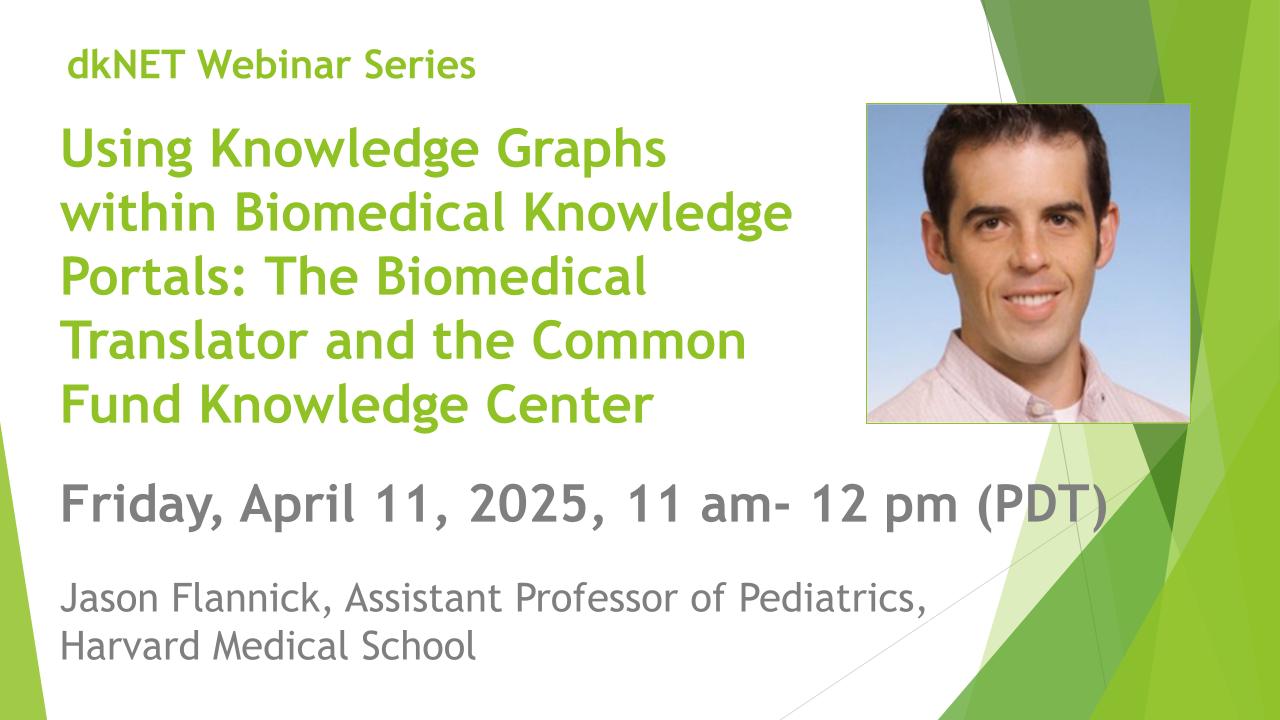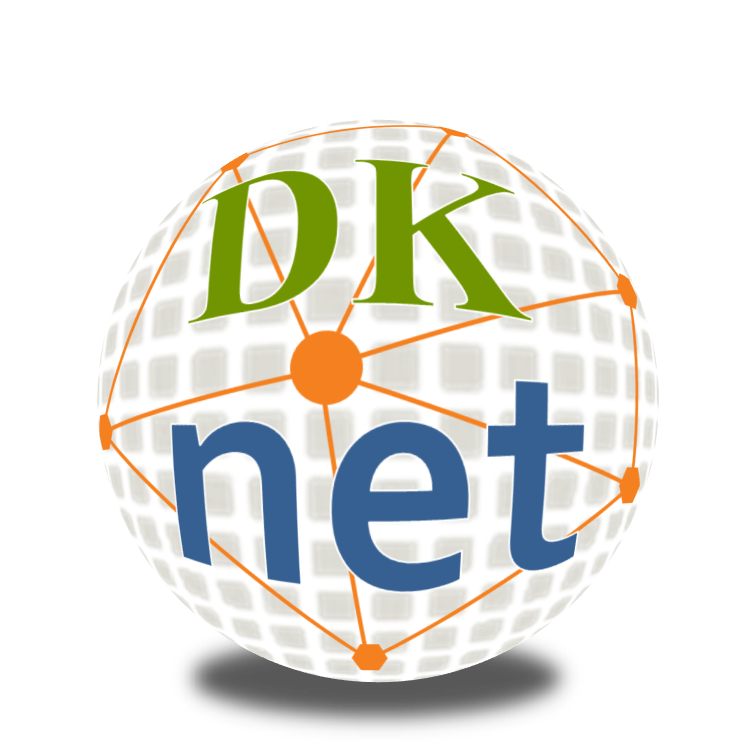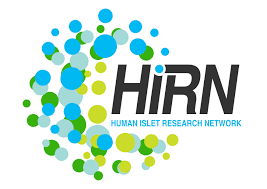Leaving Community
Are you sure you want to leave this community? Leaving the community will revoke any permissions you have been granted in this community.
dkNET community events and announcements in June, 2024
Dear dkNET Community,
dkNET provides updates on activities of interest to the NIDDK-supported community. You could keep up to date on these activities through our Twitter feed @dkNET_info, through our Community Calendar, or through dkNET e-mail list. If you have an event or funding opportunities you'd like to advertise, please contact us info_at_dknet.org.
dkNET News
AI in Precision Medicine for Diabetes and Other Chronic Conditions Survey Researchers, we need your input! Help shape NIDDK's AI in Precision Medicine workshops by sharing your insights. Participate in our survey before June 21, 2024. Survey link
Recording and Slides are Available: (1) An Encyclopedia of The Adipose Tissue Secretome to Identify Mediators of Health and Disease, presented by Dr. Paul Cohen on Feb. 9, 2024: Recording; Slides (2)The Collaborative Microbial Metabolite Center – Democratizing Mechanistic and Functional Interpretation of Microbial Metabolites” presented by Dr. Peter Dorrestein on February 23, 2024: Recording; Slides (3) The Multi-Omic Response to Exercise Training Across Rat Tissues: Data Dissemination Through the MoTrPAC Data Hub, presented by Dr. Malene Lindholm on March 8, 2024: Recording: Slides (4) Tabula Sapiens, presented by Dr. Angela Oliveira Pisco on March 22, 2024: Recording; Slides (5) Unlocking the Power of FAIR Data Sharing with ImmPort, presented by Sanchita Bhattacharya on April 12, 2024: Recording; Slides (6) Texera: A Scalable Cloud Computing Platform for Sharing Data and Workflow-Based Analyses, presented by Dr. Chen Li on April 26, 2024; Recording; Slides
Office Hours Recording and Slides: Did you missed our last session on May 3, 2024? Catch up on the presentation by Dr. Jeffrey Grethe here: dkNET Office Hours: NIH Data Management and Sharing Mandate: Recording; Slides
- Publication Spotlight: Explore Dr. Maryann Martone’s article “The past, present and future of neuroscience data sharing: a perspective on the state of practices and infrastructure for FAIR”
- New Resources added to dkNET
- cisTarget (RRID:SCR_024808) is a web application to download databases for motif enrichment, motif annotations,cluster-buster implementation, precomputed regions for creating gene-based databases, and to download lists of transcription factors for human, mouse, and fly, chip-seq tracks annotations.
- CZ CELLxGENE Discover (RRID:SCR_024894) is a portal used to find and download any of the datasets published on CELLxGENE. It allows one to download and visually explore data to understand the functionality of human tissues at cellular level. Optimized for finding, exploring, and reusing single cell data. The Collections Page lists collections hosted on CELLxGENE Discover and metadata that define tissue, assay, disease, organism, and cell count for each collection. Once you find a published dataset of interest on CELLxGENE Discover, you can click on the explore button below the dataset description to explore the cells of that dataset using the CELLxGENE Explorer.
- RNA Granule Database (RRID:SCR_024959) is a database created to collate literature evidence that supports gene or protein association with the stress granules (SGs) and P-bodies (PBs), with the goal of consolidating high-confidence proteomes of SG and PB. It is a protein database for mammalian SGs and processing bodies (PBs), which are related condensates.
- MAGeCK (RRID:SCR_025016) is a software tool to identify important genes from genome-scale CRISPR-Cas9 screens. Used for prioritizing single-guide RNAs, genes, and pathways in genome-scale CRISPR/Cas9 knockout screens.
- National Primate Research Center Consortium (RRID:SCR_024839) is a consortium collaborating across seven Centers to increase access and promote sharing of NonHuman Primate related resources among biomedical researchers. NPRCs advance missions of NIH Institutes, Centers, and Offices by providing animals, facilities, expertise, and resources required by investigators in disease-specific areas. Each Center provides expertise on the use of various NHP species as models of human disease to address specific research projects in major research fields such as infectious diseases, aging, cardiovascular disease, diabetes and metabolic disorders, neuroscience, pediatrics, regenerative medicine, reproductive health, and women’s health. ORIP supports Specific Pathogen Free rhesus macaque colonies at the California, Oregon, Southwest, Yerkes, and Tulane NPRCs and the Caribbean Primate Research Center in Puerto Rico. Additionally, SPF pigtail macaque colonies are maintained at the Washington NPRC and at the Johns Hopkins University School of Medicine.
- Cornell Veterinary Biobank (RRID:SCR_024976) is a biobank for collecting biological samples from both ill and healthy animals. Samples are processed and cataloged with the appropriate clinical information. Biobank has ISO 20387 accreditation.
- GNPS MASST (RRID:SCR_025103) is a web application that is embedded in GNPS, which is community service. It is a web-enabled mass spectrometry search engine for searches of all small molecule Mass Spectrometry data. It is used to search the single MS/MS spectrum against public GNPS spectral libraries and all public MS/MS datasets.
- ReDU (RRID:SCR_025105) is a software framework to find and re-analyze public Mass Spectrometry data. It is used to find uniformly formatted public MS/MS data in the Global Natural Product Social Molecular Networking Platform (GNPS) via formatted metadata. New or previously collected data can be added provided they adhere to the ReDU metadata standards (the implemented drag-and-drop validator is applicable to any scientific data) and data are available in GNPS/MassIVE.
- MassQL (RRID:SCR_025106) is a software application for universal searching of Mass Spectrometry data. It contains open-source MS query language for flexible and mass spectrometer manufacturer-independent mining of MS data. Implements common MS terminology to build consensus vocabulary to search for MS patterns in the single mass spectrometry run. It enables the set of mass spectrometry patterns to be queried directly from raw data.
- Natural Products Atlas (RRID:SCR_025107) is an open-access knowledge base for microbial natural product discovery. It is a database of microbially derived natural product structures. It provides coverage of bacterial and fungal natural products to visualize chemical diversity. It includes compounds and contains referenced data for structure, compound names, source organisms, isolation references, total syntheses, and instances of structural reassignment. It is an Interactive web portal that permits searching by structure, substructure, and physical properties. It provides mechanisms for visualizing natural products’ chemical space and dashboards for displaying author and discovery timeline data. It is an atlas developed under FAIR principles.
- MiMeDB (RRID:SCR_025108) is a database containing detailed information about small molecules produced by the human microbiome. It provides metabolite data including structure, names, descriptions, chemical taxonomy, chemical ontology, physico-chemical data, spectra and contains detailed information about microbes that produce these chemicals, enzymatic reactions responsible for their production, bioactivity of chemicals and anatomical location of these chemicals and microbes. Many data fields in the database are hyperlinked to other databases including FooDB, HMDB, KEGG, PubChem, MetaCyc, ChEBI, UniProt, and GenBank. The database is FAIR compliant. The data in MiMeDB are released under the Creative Commons (CC) 4.0 License.
Events in June 2024
Jun. 01-04, 2024
ENDO 2024
ENDO 2024, taking place June 1-4 in Boston, MA, is the signature annual meeting in endocrinology. World-renowned speakers gather to showcase the most cutting-edge advances in research and medicine, with presentations spanning the spectrum of science, clinical care, and social implications. Connect with thousands of endocrinologists, health care practitioners, and scientists that lead our field.
Location: Boston, MA, USA
More information: https://www.endocrine.org/meetings-and-events/endo-2024
Jun. 11-13, 2024
UK KIDNEY WEEK 2024
UK Kidney Week is the UK’s largest conference for the professional kidney community. It is the annual scientific, educational, and networking meeting of the UK Kidney Association and is renowned for its up-to-date research, state-of-the-art lectures , and diverse symposia, presentations and workshops. The event provides an exceptional opportunity for all kidney professionals to engage with collea gues, network with experts, and explore the latest research and technolog ical innovations that will shape the future of kidney-related healthcare.
Location: Edinburgh, UK
More information: https://www.ukkw.org
Jun. 11-12, 2024
NIDDK Workshop: Contextualizing Cellular Physiology (Hybrid)
This hybrid workshop seeks to provide a forum for in-depth discussions on imaging, spatial mapping and analysis methods, examining strengths, limitations, and their applicability in the practical realm of identifying tissue function or dysfunction. The workshop is structured to promote the cross-pollination of ideas from computational and optical scientists , biologists, pathologists, disease domain experts, and machine learning experts, focusing on developing practical knowledge for the community.
Location: Bethesda, MD, USA
More information: https://www.niddk.nih.gov/news/meetings-workshops/2024/contextua lizing-cellular-physiology-2024
Jun. 16-20, 2024
Metabolomics 2024(20th Annual Conference of the Metabolomics Society)
The Metabolomics Society announced the Metabolomics Conference 2024 will be held in Osaka, Japan from June 16-20, 2024..
Location: Osaka, Japan
More information: https://www.metabolomics2024.org/
Jun. 17, 2024
NIDDK Juneteenth Webinar "Pathways to Health for All: Legacy and Future Role of Genomics and Population Descriptors in Health Equity Research"
In celebration of the Juneteenth holiday, NIDDK is participating in the 19 Days of Wellness campaign that takes place across NIH. NIDDK will participate by hosting a scientific fireside chat led by Dr. Rodgers with experts in the fields of genomics.
Meeting Objectives
- Hold a discussion around the importance of genomics and population descriptors in health equity research.
- Provide information and guidance on how genomics can be used to address and reach health equity.
- Consider what the legacy and future role of genomics will be.
More information: https://www.niddk.nih.gov/news/meetings-workshop s/2024/niddk-juneteenth-webinar
Jun. 18-20, 2024
The European Islet Study Group (EISG) meeting 2024
European Islet Study Group (EISG) meeting has been organized almost every year since 1991. After the 2023 meeting in Vancouver, the EISG will return to Europe when the meeting will be organized in Helsinki, Finland, June 18-20, 2024. The meeting program will highlight important scientific developments of all aspects of pancreatic islet biology. The conference will be held in the beautiful Hanasaari congress hotel located on a small island in the immediate vicinity of Helsinki.
Location: Helsinki, Finland
More information: https://www.hels inki.fi/en/conferences/eisg-helsinki-2024
Jun. 21-24, 2024
American Diabetes Association’s 84th Scientific Sessions
Save the date for the American Diabetes Association’s 84th Scientific Sessions in Orlando, FL. June 21-24, 2024 at the Orange County Convention Center.
Location: Orlando, FL, USA
More information: https://professional.diabetes.org/scientific-sessions
Jun. 21, 2024
NIDDK Survey Due: Artificial Intelligence (AI) in Precision Medicine for Diabetes and Other Chronic Conditions
NIDDK is planning to hold a virtual Diabetes Mellitus Interagency Coordinating Committee (DMICC) meeting on Thursday, May 30, 2024, from 12:00-3:00 PM EST. It will be entitled “Artificial Intelligence in Diabetes Precision Medicine: Real World Data, Real World Opportunities and Challenges”. It is organized in recognition of the recent rapid advancement in Artificial Intelligence (AI), and that the significant gains ma de in AI have the promise and potential to significantly improve diabetes management, reduce complications and potentially reduce cost of care. Pres enters and panelists will experts and leading researchers in AI and in precision medicine of diabetes and other chronic conditions, and representatives from federal agencies, industry and non-profit organizations. Together they will discuss the current status, gaps, challenges and opportunities.
Additionally NIDDK is planning an in person workshop, on Oct 30-31, 2024, Bethesda MD, entitled “AI in Precision Medicine for Diabetes and Other Chronic Diseases: Challenges and Opportunities in Developing Predictive AI Models and Biomarkers for Disease Initiation, Progression, Prevention, and Subtypes”. This workshop aims to bring together biomedical researchers and data science/AI experts, to discuss the critical challenges, crosscutting gaps, and opportunities and actionable items in leveraging AI and other recent data science advances in precision medicine.
To help us prepare for the meetings and build on the insights from the first workshop to get ready for the second, we kindly ask you to take a few minutes to answer the following questions. Your feedback is invaluable, and we look forward to hearing your thoughts. Please complete the survey by Friday, June 21, 2024. Thank you.
More information: https://docs.google.com/forms/d/e/1FAIpQLSff-_1b gbM0oNlbNmeMwX0Wn49_64Pr7x1MaWljrqKOkanylw/viewform
Jun. 21, 2024
NIDDK and ISAC Kidney Engineering Workshop (Virtual)
Session 2) Advancing Uremic Toxin Removal - Merging chemistry and microbiology to enhance purification solutions. This session will explore opportunities to leverage chemistry, microbiology, and other approaches to enhance blood purification. Webinar Registration: https://bit.ly/4ayLgiV.
More information: https://isac-kuh.org/shared/virtu alWorkshops.aspx
Jun. 25, 2024
2024 DataWorks! Prize Symposium (Virtual)
Join us for the second annual DataWorks! Prize Symposium, cohosted by FASEB DataWorks! and NIH Office of Data Science Strategy. Learn about innovation and best practices in data sharing and reuse in biomedical research. This symposium will feature seven award-winning speakers from the 2 023 DataWorks! Prize who will share their exemplary work in advancing human health through data sharing and reuse.
More information: https://www.faseb.org/meetings-and-events/webinars/2024-dataworks-prize-sym posium
Jun. 27, 2024
NIDDK Workshop Registration Deadline: Heterogeneity in Pancreatitis: Recognizing Heterogeneity and Its Role in the Management of Pancreatitis (Hybrid)
The heterogeneity of pancreatitis confounds the ability to prov ide optimum care to patients. Multiple etiologies—including congenital variations in pancreatis anatomy, multiple courses of disease, various complications, and the absence of clear treatment algorithms—all contribute to the complexity of pancreatitis. Should the treatment of acute, recurrent acute, or chronic pancreatitis be determined by the etiology, morphology, or stage of disease? To address these issues, NIDDK will hold a one-day workshop to unravel the contributions of etiology and stage of disease, understand the heterogeneity of pancreatitis symptoms, and create strategies to develop well-designed treatment trials. Workshop date: July 24, 2024.
Location: Cincinnati, OH, USA
More information: https://www.niddk.nih.gov/news/ meetings-workshops/2024/heterogeneity-in-pancreatitis-2024
Funding Opportunities Information and Deadlines in June 2024
Jun. 14, 2024
IIDP Funding Opportunities Application Due: IIDP (Integrated Islet Distribution Program) Islet Award Initiative (IAI)
Supported by JDRF and NIH, IIDP will provide up to 100,000 IEQ ($15,000) to investigators who are new to human islet research. The IIDP Islet Award Initiative is intended to advance research in huma n islet biology by facilitating the ability of researchers to access human islets for high impact and novel research studies. The number of IIDP Islet Awards funded under this initiative will be determined in any single year based on available resources but will average 3-4 awards per submission date.
More information: https://iidp.coh.org/Investigators/Islet-Award-Initiative
Jun. 17, 2024
NIDDK Funding Opportunity Letter of Intent Due: Adaptation of Diabetes Control Technologies for Older Adults with T1D (R01 Clinical Trial Optional)
The main objective of this NOFO is to foster development and testing of technologies adaptable to aging-related changes in older adults (aged 65 years or older) with T1D to improve diabetes management and quality of life. Older adults may have increased vulnerability to hypoglycemia, cognitive impairment and/or multiple co-morbidities which may affect the risk s and benefits of these technologies in this population. Projects will be funded to a) develop and test new technologies and b) to adapt and test existing technologies. It is expected that aging-adaptive diabetes technologies that address barriers for use among older adults with T1D will improve usability, adoption and adherence decreasing the risk of hypoglycemia (and hypoglycemia unawareness) while enhancing glycemic control, facilitating better diabetes management, and improving quality of life for these individua ls and their caregivers. Application Due Date: July 17, 2024.
More information: https://grants.nih.gov/grants/guide/rfa-files/rfa-dk-24-002.html
Jun. 27, 2024
NIDDK Funding Opportunity Application Due: Continuous Ketone Monito ring for the Safe Use of Sodium-glucose Cotransporter-2 Inhibitors in Type 1 Diabetes (R01 Clinical trial Required)
Sodium-glucose co-transporter-2 inhibitors (SGLT2i) that were developed for the treatment of type 2 diabetes (T2D) have significant protective effects for cardiac and renal diseases for people with and without diabetes. However, SGLT2i are not currently approved for individuals with type 1 diabetes (T1D) and there is an increased risk of diabetic ketoacidosis (DKA) for this population. Despite this concern, these drugs are increasingly being prescribed off-label for people with T1D. Continuous ketone monitoring (CKM) is a rapidly evolving technology that could be utilized clinically to prevent DKA by an early warning of elevations in ketone levels. The purpose of this NOFO is to solicit applications for studies that will devel op and test risk mitigation strategies that involve the clinical integration of CKM for the safe use of SGLT2i for people living with T1D so that they may benefit from the cardiac and renal protection and glucose-lowering effects of this drug class. The NOFO will support short-term, clinical trials to gain and disseminate knowledge on safety and glucose control with CKM and SGLT2i use. Possible topics include testing optimal insulin delivery in open and closed loop systems or multiple daily injections and developing clinical protocols to control or ameliorate elevated ketone levels in individuals with T1D who are receiving adjunct therapy with SGLT2i. Letter of Intent Due Date: May 27, 2024. Application Due Date: June 27, 2024.
More information: https://grants.nih.gov/grants/guide/rfa-files/rfa-dk-23-011.html





